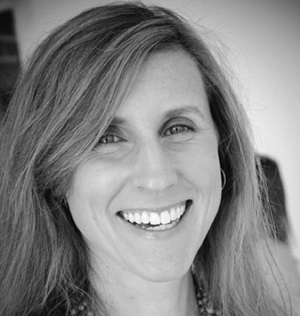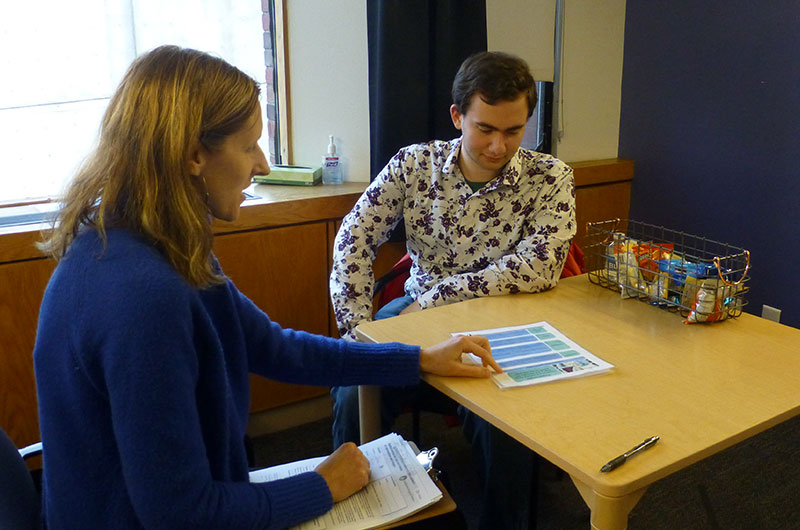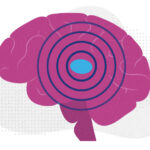CRUSH: Developing a sexual education program for young adults on the autism spectrum

For many young adults on the autism spectrum, developing and maintaining positive intimate relationships can be challenging. But collaboration between Boston Children’s Hospital and UMass Boston hopes to provide some on-point guidance through a new initiative¾the Competence in Romance and Sexual Health (CRUSH) program, aimed at developing a new sex education curriculum for young adults on the autism spectrum.
“As clinicians, we know that our young adult patients are very interested in the topic of sex and intimacy,” says CRUSH co-leader Susan Faja, PhD, of the Labs of Cognitive Neuroscience at Boston Children’s Hospital. “Though they may not communicate it, it is something that is important to many within the autism community.”

To help this community navigate the waters of dating and sexual health, Faja and her colleagues are recruiting young adults on the autism spectrum. Their plan is to create a targeted knowledge- and skills-based training program to meet their sexual health and dating needs.
“In general, there is not a lot of guidance about how we should be bringing this up with our patients,” she says.
In addition, evidence-based curricula on the topic lacks for adults on the spectrum. To bridge that gap, CRUSH investigators are in the process of gathering input from young adults as they design the curriculum’s content.
“We are trying to see what is going well for young adults on the autism spectrum in terms of both dating and sexual activity, as well as the things that are challenging,” says Faja.
Direct patient input guides curriculum
Participation in the CRUSH study involves one phone call and two in-person visits with Faja or her colleagues. During interviews, researchers ask participants about dating and romance, sexuality, and their preferences for how the information might be provided. This might include preferences for online information vs. printed manuals, or group instruction involving peers vs. one-on-one instruction with a provider.

“We are interested in learning what young adults on the spectrum know about dating, engaging in different kinds of sexual activities, and sexual health practices,” says Faja. “We are curious about how motivated/how anxious they are about those things.”
In addition, parents or caregivers may respond to a brief questionnaire with the patient’s consent. Researchers are also requesting participation from service providers—either medical or other kinds of behavioral care.
“We want input about what various different stakeholders think this kind of program should look like both in terms of content that would be useful to cover and what format would be most acceptable for young adults on the spectrum to receive that information,” adds Faja.
When fully enrolled, the CRUSH study will include the input of 60 verbal young adults aged 18-26 in the Boston/Southern New England area.
As the research findings build, the team’s plan is to develop a CRUSH intervention program that could be disseminated across to a wide range of education or healthcare settings.
Extending research to teenagers
As the research continues, Faja and her colleagues hope to eventually provide the curriculum to teenagers on the spectrum.
“Even though we know this topic is on the minds of teenagers on the autism spectrum and their parents, there may be some discomfort about sharing this information with them,” says Faja, who instructs psychology and medicine trainees on the subject within the hospital’s Development Medicine Center and the Autism Spectrum Center. “Or, there may be some misunderstanding on the part of the parents that their teens are not interested in this topic. We are clearly hearing from our research participants that they are.”
Curricula already exist in many school settings regarding sex education. “Although young adults and teens on the autism spectrum may understand the biology of sex, they often do not understand socially how to act in terms of being romantically interested or intimate with someone,” says Faja. CRUSH hopes to fill in those gaps.
Reducing victimization
Faja and her colleagues were first motivated to initiate the CRUSH project based on some sobering research. Research shows that victimization rates, including sexual abuse and exploitation, are significantly higher for adults on the autism spectrum.
One study shows that for young adults on the autism spectrum
- rates of unwanted sexual contact were three times more likely,
- sexual coercion was 2.7 times more likely,
- experiencing rape was 2.4 times more likely.
Misunderstandings about sex, consent, and dating, among others can lead to very real physical and legal troubles. Consequently, misunderstandings of this nature affect not only sexual health but also housing and employment if one is perceived as behaving inappropriately in a romantic or sexual setting. “One could lose access to basic things that help you function more independently,” says Faja.
“We are so enthused to work with these young adults and other stakeholders who have participated so far,” says Faja. “We realize CRUSH has the potential to not only improve the quality of life of young adults on the spectrum but also increase their independence and well-being.”
CRUSH is a collaboration between Faja and David Pantalone, MD at UMass Boston, and is funded by an initiative at the National Institute of Mental Health that aims to improve services for transition-age youth and young adults on the autism spectrum.
For more information, including how to participate, contact ProjectCRUSH@childrens.harvard.edu
Related Posts :
-

The hidden burden of solitude: How social withdrawal influences the adolescent brain
Adolescence is a period of social reorientation: a shift from a world centered on parents and family to one shaped ...
-

New research shows caregiver instability affects development
According to some estimates, more than 100 million children around the world experience separations from their caregiver every year. Previous research — ...
-

The thalamus: A potential therapeutic target for neurodevelopmental disorders
Years ago, as a neurology resident, Chinfei Chen, MD, PhD, cared for a 20-year-old woman who had experienced a very ...
-

A better treatment for endometriosis could lie in migraine medications
Endometriosis is a common, mysterious, often painful condition in which tissue similar to the uterine lining grows outside the uterus, ...





